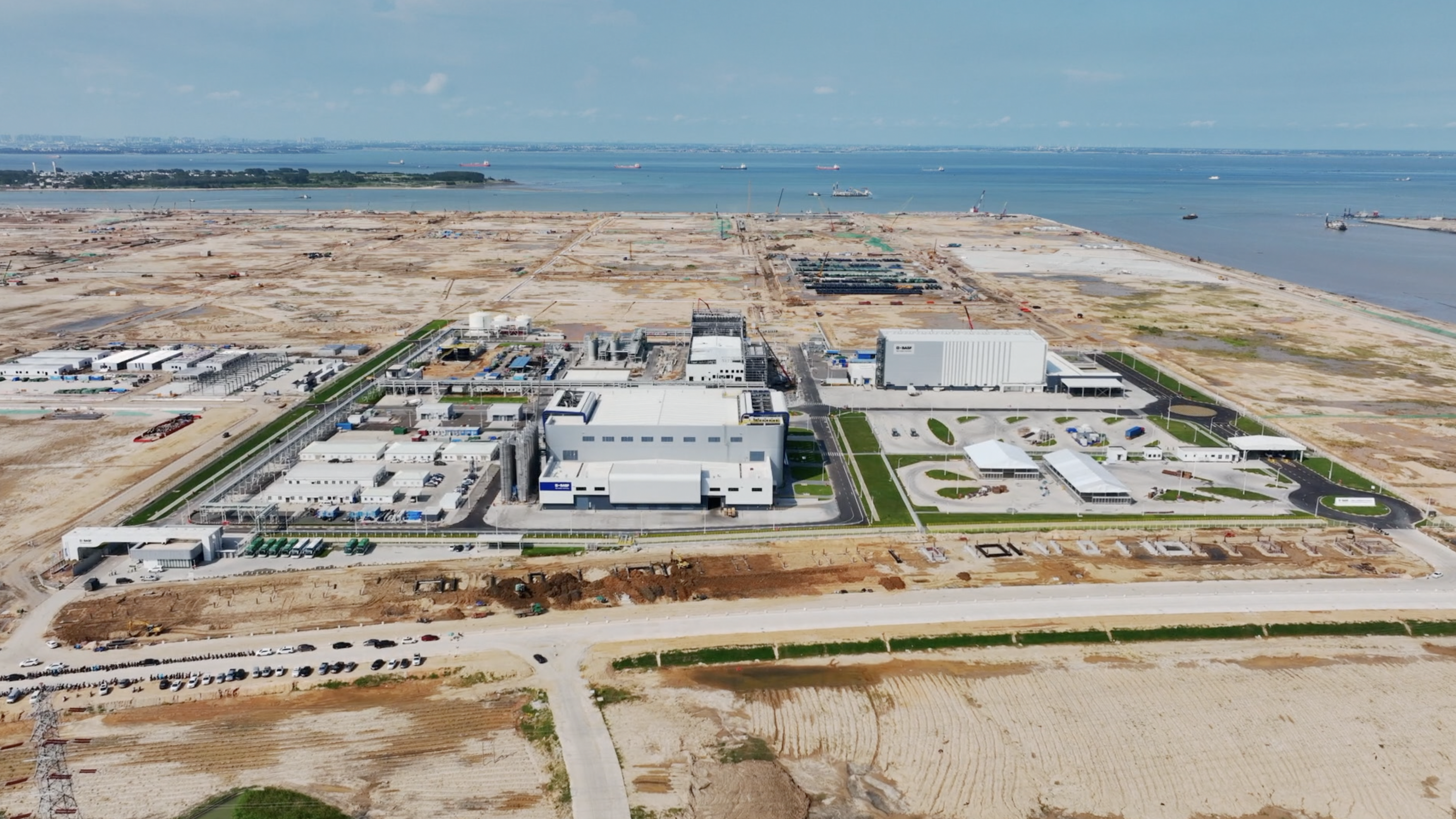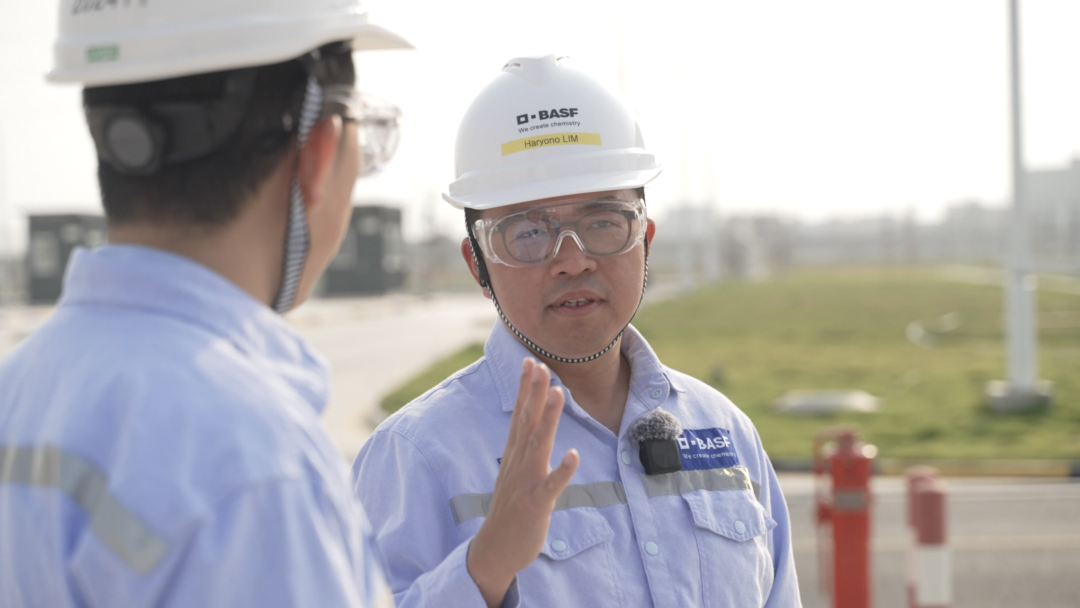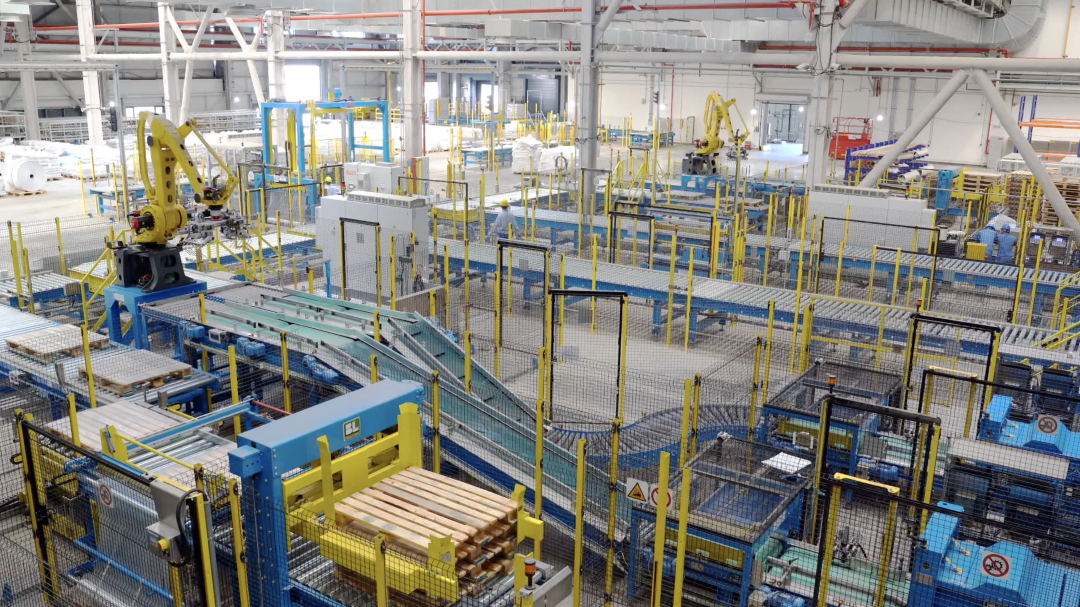
BASF's Verbund site in Zhanjiang, Guangdong Province, China. /CGTN
BASF's Verbund site in Zhanjiang, Guangdong Province, China. /CGTN
As our car approaches the site of BASF's Zhanjiang integrated project, I begin to realize that the size of the project by the Germany-based chemical company is beyond any construction site that I have ever seen.
Looking in from the entrance of the chemical plant, pipes that hang above cement trucks were as far as the eye can see. Four hundred hectares is equal to some 550 soccer fields. In three years, the vast and empty space will be packed with facilities and buildings. The cost of building such a mega plant is reaching a total of 10 billion euros ($9.91 billion).
We are greeted by Haryono Lim, general manager of the Zhanjiang Verbund site.
Born in 1972 in Indonesia, Lim's family has roots in Guangdong. Now, he is leading the production of the most glamorous foreign investment project in the province.
The decision to build this Verbund project was made in 2018 when BASF and the Guangdong provincial government signed a memorandum of understanding in Berlin and construction work started in May of 2020.
The entire project will be completed by 2030. It will become the third largest Verbund site that BASF has built and the largest one outside of Europe.

Haryono Lim, general manager, BASF Integrated Site (Guangdong) Co. Ltd. /CGTN
Haryono Lim, general manager, BASF Integrated Site (Guangdong) Co. Ltd. /CGTN
Speaking on the decision to build the site in China, Lim said it was carefully made.
"We have been investing in China in the last few decades as well. And in order to continue our growth in China, we need a strong foundation and a strong platform," said Lim.
For those who are unfamiliar with the chemical industry, the facility's product will include high-durability and flexibility material used in various products from sports footwear to auto parts.
Lowering carbon footprint
China has set the goal of reaching carbon neutrality by 2060. It is becoming a guideline for local governments to introduce major projects.
The new Verbund site falls in line with the requirements of sustainable development both by BASF and the local government.
"We have strong support from the government to work together with us to make sure that we work hand in hand together, the Zhanjiang Government and BASF, to lower the carbon footprint," Lim said.
One of the major measures to reduce carbon footprint is to introduce green power. "The production site is 100 percent using renewable energy," said Lim.

A view of the BASF plant where engineering plastics is produced. /BASF
A view of the BASF plant where engineering plastics is produced. /BASF
Guangdong has abundant renewable energy reserves. That includes solar power, on-shore and off-shore wind power. According to the Energy Bureau of Guangdong, the total installed capacity of renewable energy in the province will reach 60 million kilowatts by 2025.
'We are here for the long haul'
BASF is also building a chemical ecosystem in Zhanjiang. In September 2022, BASF and the Zhanjiang government co-held a co-location event, where 26 companies were invited to join online and offline. A series of deals worth 7 billion yuan were made during the event.
"In order to be successful in our industry you need to support the ecosystem, meaning the entire supply chain from upstream to downstream, your suppliers, your customers, your partners, they should all be in close proximity," said Lim.
The site was built in Zhanjiang of Guangdong Province, one of the southernmost cities in China. The deep-water port and complex transport system the city has is one of the key factors the project came here.
On Donghai Island, an island to the south of the city, a petrochemical industrial zone is taking form. Apart from BASF's new Verbund site, there are also refineries belonging to Sinopec and an iron and steel plant of Baowu Group, China's largest iron and steel manufacturer.
Now Lim has moved his family to Zhanjiang. He and many other experts from around the world are about to spend years here working on the project. "At the end, the investment has to be profitable and sustainable, meaning that we have to be combative," said Lim.
"Fundamentally I think the market, the macro economy of China is still healthy, in spite of an economic downturn that we are experiencing now. But we are here for the long haul. We are here for long term."